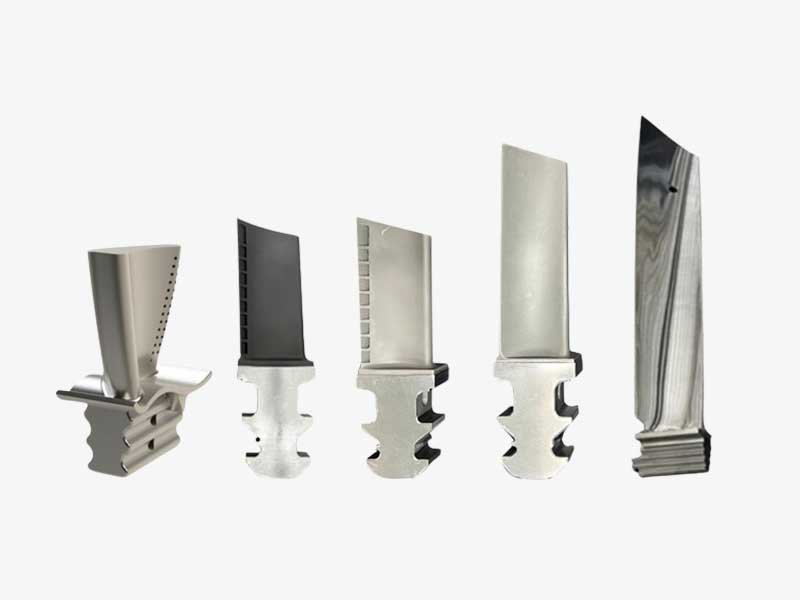
The service temperature of titanium alloy turbine blades depends on the specific titanium alloy composition and manufacturing process, as well as the specific design requirements and application scenarios. Generally speaking, the use temperature of titanium alloys can be divided into several levels:
Low temperature grade: Titanium alloys are generally able to maintain good mechanical properties and corrosion resistance from room temperature to about 200°C.
Medium temperature level: In the temperature range of about 200°C to about 500°C, titanium alloys can still maintain good strength and wear resistance, and are suitable for blade applications in some aerospace engines and gas turbines.
High-temperature grade: Some high-temperature titanium alloys can operate in high-temperature environments above 500°C, such as in turbochargers, high-temperature gas turbines, and chemical industries.
The specific titanium alloy blade design and service temperature are also affected by the following factors:
Alloy composition: Different titanium alloys contain different alloying elements and additives, which can significantly affect their high-temperature strength and heat-resistant properties.
Manufacturing process: Processes such as precision casting, liquid forging and heat treatment can improve the grain structure and mechanical properties of titanium alloy, thereby improving its stability in high temperature environments.
Stress and environment: The stress experienced by the blade during operation, chemical media in the environment, and possible oxidation and corrosion will all affect its long-term service temperature.
Select corrosion-resistant materials: When manufacturing turbine blades, select materials with good corrosion resistance, such as titanium alloy, etc.
Surface treatment of turbine blades, such as spraying anti-corrosion coatings, electroplating, etc., can improve the corrosion resistance of the blades.
Minimize the corrosive media in the environment where the turbine blades are located, such as moisture, oxygen, acid, alkali, etc.
Regularly inspect and maintain the turbine blades to detect and deal with corrosion problems in time to avoid further deterioration of corrosion.
In the design and manufacturing process of turbine blades, some anti-corrosion technologies, such as cathodic protection, corrosion inhibitors, etc., can effectively prevent corrosion.
Aerospace: used to manufacture high-temperature blades and nozzles in aircraft engines and turbochargers to provide efficient power output.
Energy industry: especially used in gas turbines and turbochargers, turbine blades that require high temperature and corrosion resistance.
Chemical industry: used to manufacture corrosion-resistant blades and bearings for chemical reactors, high-pressure pumps and valves.
Marine engineering: used in seawater environments, turbine blades and other key components of ships and offshore platforms to ensure long-term stable operation and resist seawater corrosion.
Part numbers alone are not sufficient to ensure performance.
To guarantee precision and compatibility, please provide:
Drawings or used samples for reverse engineering.